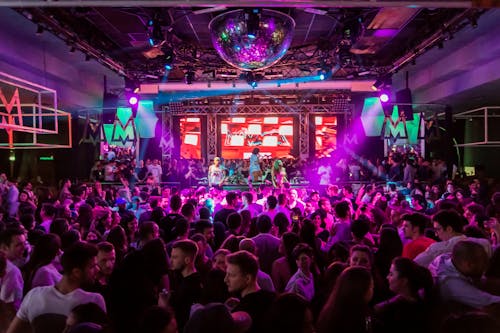
Image Source: Google
Guestlist culture has undergone a significant evolution over the years, moving from being a hush-hush practice known as a “taboo” to a mainstream phenomenon referred to as “tabu.” The journey of how guestlists have transformed and become an integral part of the social scene reflects changing societal norms, cultural shifts, and the influence of technology.
Historically, guestlists were associated with exclusivity and elitism, reserved for only the privileged few who had connections or a certain level of status. Being on a guestlist meant you had access to exclusive events, VIP areas, and special treatment. However, this exclusivity also meant that guestlists were often shrouded in secrecy and mystery, with a stigma attached to them as being exclusive clubs for the elite.
As society progressed and became more inclusive, the concept of guestlists began to shift. Instead of being seen as a symbol of exclusivity, guestlists started to be viewed as a way to manage crowd control, ensure a certain level of quality at events, and provide perks for loyal customers. The idea of being on a guestlist no longer carried the same negative connotations and instead became a way for venues to attract and reward their most valued patrons.
One of the key factors driving the evolution of guestlist culture is the rise of social media and technology. With platforms like Facebook, Instagram, and Twitter, event organizers can easily create and manage guestlists online, allowing for greater transparency and accessibility. People can now RSVP to events, share their attendance with friends, and even purchase tickets directly through social media platforms, making the guestlist process more seamless and inclusive.
Another significant change in guestlist culture is the shift towards diversity and inclusivity. While guestlists were once synonymous with a homogeneous group of social elites, today’s guestlists are more diverse and inclusive, reflecting the changing demographics of society. Event organizers are making a conscious effort to ensure that their guestlists represent a broader range of backgrounds, cultures, and identities, creating a more welcoming and inclusive environment for all attendees.
The evolution of guestlist culture is also evident in the types of events that utilize guestlists. While exclusive nightclubs and high-end restaurants were once the primary users of guestlists, now we see a wide range of events and venues implementing guestlist systems. From music festivals and art exhibitions to pop-up shops and wellness retreats, guestlists have become a versatile tool for event organizers to manage attendance, create buzz, and reward their most loyal supporters.
One of the most significant changes in guestlist culture is the shift towards a more personalized and tailored experience. Event organizers are now using data and analytics to create customized guestlists that cater to the specific preferences and interests of attendees. By collecting information on past attendance, purchasing behavior, and social media engagement, organizers can curate guestlists that offer targeted perks, discounts, and experiences for each individual, creating a more personalized and engaging event experience.
Despite the evolution of guestlist culture, there are still challenges and criticisms associated with the practice. Some argue that guestlists perpetuate inequality and exclusivity, creating a divide between the “haves” and “have nots.” Others believe that guestlists can be exclusionary and discriminatory, leading to accusations of favoritism and elitism. Event organizers must navigate these concerns carefully and strive to create guestlists that are fair, inclusive, and reflective of the diversity of their community.
In conclusion, the evolution of guestlist culture from being a taboo practice to a mainstream phenomenon reflects the changing dynamics of society, the influence of technology, and a shift towards inclusivity and personalization. While guestlists continue to be a central aspect of the social scene, it is essential for event organizers to approach guestlist management with transparency, fairness, and inclusivity to ensure that everyone has the opportunity to participate and enjoy the benefits of being on a guestlist.
